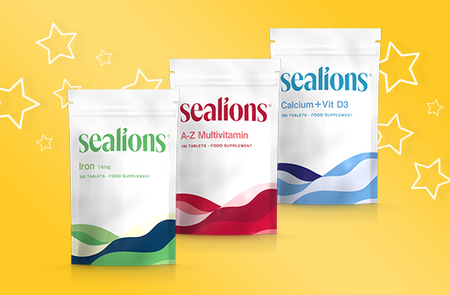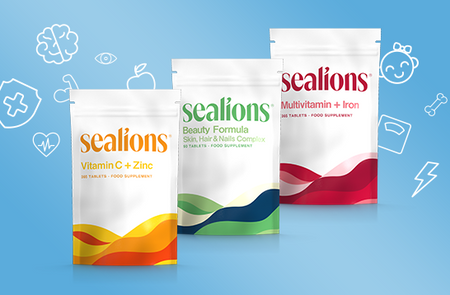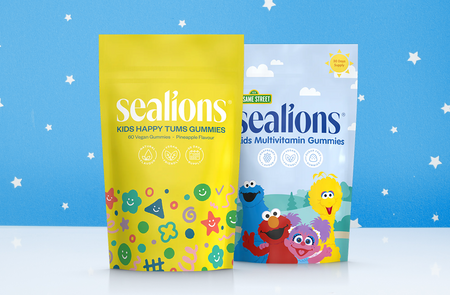
Healthy Kids, Happy Kids: The Importance of Vitamins for Children's Wellbeing
As parents and caregivers, nothing brings us more joy than seeing our children thrive. Ensuring their health and wellbeing is a top priority, and a key aspect of this is providing them with the essential vitamins they need to grow, develop, and stay healthy. In this article, we'll explore why vitamins are crucial for the wellbeing of children, delve into the specific vitamins that play vital roles in boosting their immune systems and cognitive functions, and offer practical advice on incorporating vitamin-rich foods and supplements into their diets to ensure their continued health and happiness.
The Foundation of Wellbeing: Why Vitamins are Crucial for Children
Vitamins are essential micronutrients that our bodies need in small quantities to function correctly. They are crucial for various bodily processes, including growth, development, and overall health. For children who are in the midst of rapid growth and development, getting the right balance of vitamins is even more critical.
Here are some reasons why vitamins are so crucial for children:[1]
- Growth and Development: Vitamins are like the building blocks that support children's physical and mental growth. They help in the development of strong bones, healthy skin, and a robust immune system.
- Immune System Support: Certain vitamins, like vitamin C and vitamin D, play a vital role in bolstering a child's immune system, helping them fight off illnesses and infections.
- Cognitive Function: Vitamins are essential for brain development and cognitive function. They contribute to memory, attention, and overall mental wellbeing.
- Energy Production: B vitamins in particular are involved in energy production, which is crucial for active and growing children.
Which Vitamins Are Important, and Why?
There are some vitamins that are particularly beneficial to children's growth and development [2]:
Vitamin C
Often associated with citrus fruits, vitamin C is a powerful antioxidant that helps boost the immune system. It also aids in the absorption of iron, which is essential for overall health.
Vitamin D
Also known as the "sunshine vitamin", vitamin D plays a crucial role in bone health by helping the body absorb calcium. It also provides essential support for immunity and muscle function.
Vitamin A
This vitamin is essential for maintaining healthy skin, vision, and a robust immune system. It's found in foods like carrots, sweet potatoes, and spinach.
Vitamin E
Vitamin E is an antioxidant that helps protect cells from damage and supports a healthy immune system. It's found in nuts, seeds, and vegetable oils.
B Vitamins
B vitamins, including B1 (thiamine), B2 (riboflavin), B3 (niacin), B6 (pyridoxine), and B12 (cobalamin), are essential for energy production and cognitive function. They are found in a variety of foods, including whole grains, lean meats, and dairy products.
Omega-3 Fatty Acids
While not a vitamin, omega-3 fatty acids found in fatty fish like salmon and walnuts are crucial for brain development and cognitive function.
Incorporating Vitamins Into Children's Diets
Now that we understand the importance of vitamins for children's wellbeing, let's explore practical ways to ensure they get the necessary nutrients.[3]
- Balanced Diet: Encourage your child to eat a well-balanced diet that includes a variety of fruits, vegetables, lean proteins, whole grains, and healthy fats. These foods provide a broad range of vitamins and minerals.
- Colourful Plate: Make mealtime fun by incorporating a variety of colourful fruits and vegetables. Different colours indicate different nutrients, so aim for a rainbow of choices.
- Healthy Snacks: Offer healthy snacks like yoghurt, whole-grain crackers with cheese, or sliced fruits and vegetables. These can be delicious sources of essential vitamins and minerals.
- Supplements: In some cases, children may benefit from vitamin supplements, especially if they have dietary restrictions or specific deficiencies. Sealions' Kids Multivitamin Gummies are a tasty and convenient way of giving your child nutritional support. Consult a doctor before introducing supplements to ensure the right dosage and type.
- Fortified Foods: Some foods are fortified with vitamins, such as breakfast cereals with added vitamin D, or calcium-fortified orange juice. These can provide convenient ways to boost your child's daily nutrient intake.
- Avoid Excess Sugar: Limit sugary drinks and snacks, as excessive sugar intake can interfere with the absorption of certain vitamins.[4]
- Hydration: Encourage your child to drink plenty of water throughout the day to stay properly hydrated, which supports overall health.
- Regular Meals: Establish a routine of regular meals and snacks to ensure your child gets consistent nourishment throughout the day.
- Outdoor Play: Encourage outdoor playtime to help your child get enough vitamin D from sunlight, which is crucial for strong bones and a healthy immune system. Don't forget to protect their skin with adequate SPF - even on cloudy days!
In the journey of parenthood, ensuring the wellbeing of our children is paramount. Vitamins play a vital role in supporting their growth, development and overall health. By understanding the specific vitamins that boost their immune systems and cognitive functions, and by incorporating nutrient-dense foods into their diets, with supplements offering additional support, you can provide them with the foundation they need to thrive.
Remember that a balanced diet, regular meals, and a healthy lifestyle are key components of raising healthy and happy children.
Sources
Tagged:









